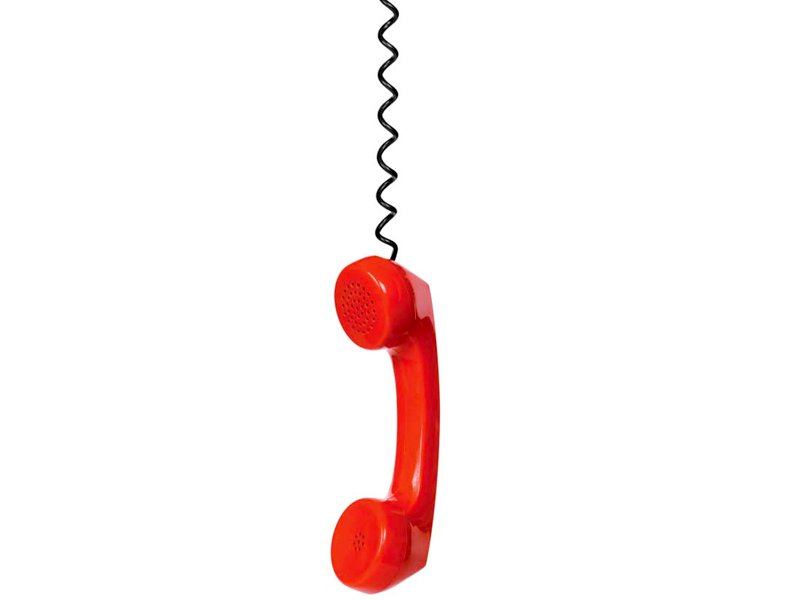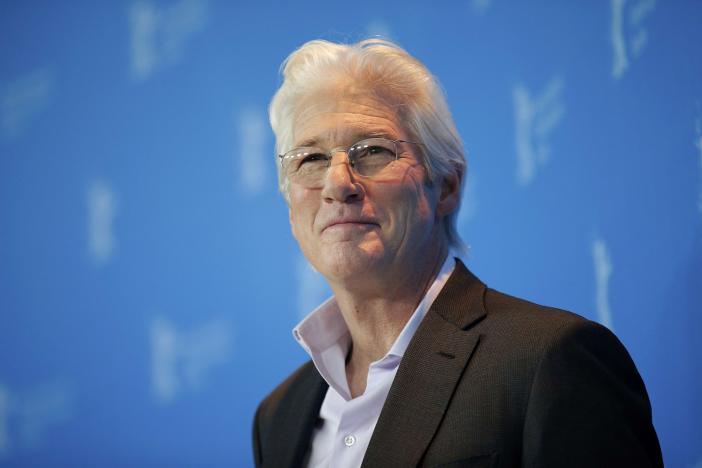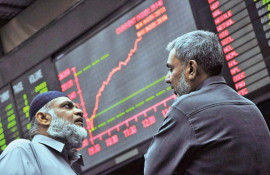
For those who do not know, grey traffic is smuggling-in of international calls, measured in minutes, through channels other than licensed. It not only means national wealth going into pockets of smugglers, make no mistake, grey traffic is also a threat to national security as a call coming through the grey channel may be nearly impossible to trace back. What is more alarming is that in Pakistan grey traffic is on the rise.
According to Pakistan Telecommunication Authority’s (PTA) annual report, total international incoming call-minutes coming legally in 2011-12 had increased by 109% over the previous year, but decreased in 2012-13 by 26%. Over the last 13 months, international telephone traffic coming through legal channels has plummeted to less than half – from 1 billion minutes in October 2012 to 460.7 million in December 2013.

It is safe to assume that most of the call-minutes that “disappeared” actually got converted into grey traffic, adding to the grey traffic that existed even before October 2012.
Story behind grey traffic
It all started when the smugglers discovered that on every minute of calls coming into the country, there is a premium in the form of two charges, which could be stolen and pocketed. These charges are: (a) Access Promotion Charge (APC) meant for Universal Service Fund (USF) to provide telecom services universally, and (b) share of Long Distance International (LDI) operators who have the licences to legally bring in those minutes.
Both these charges are part of the Account Settlement Rate (ASR). ASR is a necessity because the local operators (both LDI as well as last-mile) get paid out of it. Plus the government also gets a part of it. But if the government becomes greedy and jacks up the ASR by increasing charges like the two mentioned above, smuggling becomes lucrative and the state ends up getting nothing.
These two charges were initially added to the ASR at the time of deregulation and issuance of new licences in 2003-04. At that time, it was foreseen that as the businesses of the licensees became stable, and enough money got accumulated in USF, the ASR would be gradually brought down to a very bare minimum. Between January 2005 and October 2007, it was brought down from 16.3 US cents per minute to 7 cents.
However, the previous government, soon after coming into power, suddenly raised these charges, taking the ASR from 7 cents, first to 10 cents in May 2008, and then to 12.5 cents in February 2009. It was only after 26 months, in April 2011, that ASR was lowered to 7.75 cents (still higher than 7 cents of 2008).

The reduction did not last very long. In August 2012, the then prime minister, in his capacity as minister in charge of IT, directed PTA to midwife an agreement among all 14 licensed LDI operators to form an International Clearing House (ICH) whereby all international voice calls coming to Pakistan would be routed, and each one of them would get a guaranteed percentage share from ASR. Simultaneously, ASR was increased to 8.85 cents per minute.
At that rate, 1 billion legal minutes in one month translated into $88.5 million for October 2012 (it is not known if all of it actually came into the country, but that is another story). However very soon, legal minutes started to disappear, coming down to 460.7 million in December 2013, which translates into $40.77 million. At least, some of the balance $47 million per month is going in some pockets!
It must be conceded that some of the legal minutes are disappearing because of the so-called ‘Over The Top’ (OTT) services like Skype, Viber, etc. We have no means to determine the exact amount of grey traffic. But most of us are now used to frequently seeing local numbers appear when we receive calls from abroad.
Anecdotal evidence says that 50% to 90% of the total incoming international traffic is grey. How much is total incoming international traffic (including grey traffic)? No one knows. Estimates vary from 1.2 billion minutes (says ICH Agreement itself) to above 2 billion minutes.
How to stop grey traffic?
One proposal to stop grey traffic is to offer the last-mile operators (mainly mobile) a share from ICH revenues. The argument is that since the grey calls are connected to end-subscribers by these operators – the reason why we see local numbers in case of international calls – giving them a share would make them curb grey traffic. But this would neither make calls to Pakistan cheaper, nor would it remove the incentive to smuggle.

As long as there is premium in ASR, grey traffic will flourish, as we have seen above, the more the premium, the more the grey traffic. Therefore, it is the premium in ASR that needs to be eliminated.
It is estimated that it costs grey traffickers between 2 and 2.5 cents per smuggled minute, which means an ASR of around 3 cents will significantly reduce the incentive to smuggle.
If one assumes the international incoming minutes to be 1.5 billion, and ASR is set at 3 cents, the result would be $45 million per month ($4 million higher than last month’s actual).
Reducing ASR involves two steps: a) Do away with ‘APC for USF’, at least for the present. USF has enough, even if the money is now with the government. In any case, the USF contribution (1.5% of operators’ revenues) would still keep adding to the fund. b) Do away with guaranteed share of LDIs – presently nearly 6 cents per minute. Let there be real competition where the operators earn whatever they can.
The writer is the former CEO of Universal Service Fund and is presently working as ICT consultant in various countries of Asia and Africa
Published in The Express Tribune, January 13th, 2014.
Like Business on Facebook, follow @TribuneBiz on Twitter to stay informed and join in the conversation.
COMMENTS (7)
Comments are moderated and generally will be posted if they are on-topic and not abusive.
For more information, please see our Comments FAQ

1732271743-0/diddy-(45)1732271743-0-165x106.webp)















One very pertinent remark of Tariq Siddique above: "the rate was increased from 1.3c to 8.85c in Oct 2012". Its not just that overseas Pakistanis have to suffer because of the present unjust arrangement, even worse is that most of this additional payment is going in the pockets of smugglers. These are the same overseas Pakistanis who toil hard abroad and send US$ 14 Billion annually to Pakistan.
@Adnan I agree with you that we should allow VoIP, but what if it is legal but the VoIP operator avoids the related obligatory payments fixed by the government? In other words even legalised VoIP can be grey! It is also not correct to say that all grey traffic is VoIP, as a lot of grey traffic does not come over IP, but the problem starts when it by-passes licensed channels and "saves" obligatory payments. That is why I have said in the Article that these obligatory payments should be made very low so that the "saving" of the smuggler is not enough to make it a lucrative business.
@Usman786 I don't know what you mean by "concrete" or "big", but if I can raise my voice for the betterment of the country and it's Telecom sector, which provides jobs to lakhs of people and can do a lot more, then don't you think I am doing something good? As for what I could do at USF, well USF is mandated to arrange Telecom services for areas that are unserved or underserved. I wanted to do a lot more in that domain, but got hindered at the end (but that is another story). If USF starts giving scholarships and donations, it would be against the rules. Thanks for sharing your thoughts and thus letting me clarify.
How does the US and Canada handle this problem ? They more security issues then Pakistan and they have allow Voice Over IP (So Called Grey Traffic). You can not stop it, its a positive change and facility to End User. We must learn from U.S , Canada Telecommunication Authorities.
Anyway, a good informative article.
Good article but a man of your caliber should do something concrete. I know about your great contributions when heading USF, but did you launched any IT scholarship or gave donation to IT university. Infact you saved money which was later used by ex PM Gilani for media campaign of his son's election. I am 99% sure that our IT minister would not listen to your advice. Think BIG.
Well written article. Traffic dropped from 1B to half - because the rate was increased from 1.3c to 8.85c in Oct 2012. In such a drastic increase the traffic was already expected to fall apart accordingly (so it's not entirely due to increase in grey). I think the grey share is around 30%, and can only be controlled by giving MNO's the benefit on international call! Currently they make on international call as much as they do on national. Other than this whatever will be done will not guarantee positive results.
And letting the 14 LDI (now 1+) compete will do no good to the FOREX and revenue collection, as pre-ICH era was full of non-payment of APC charges, under-cutting the ASR and court's unnecessary stays by LDI's. In the ICH era at least the Govt's money is secure.
Nevertheless, every system has its pros and cons.